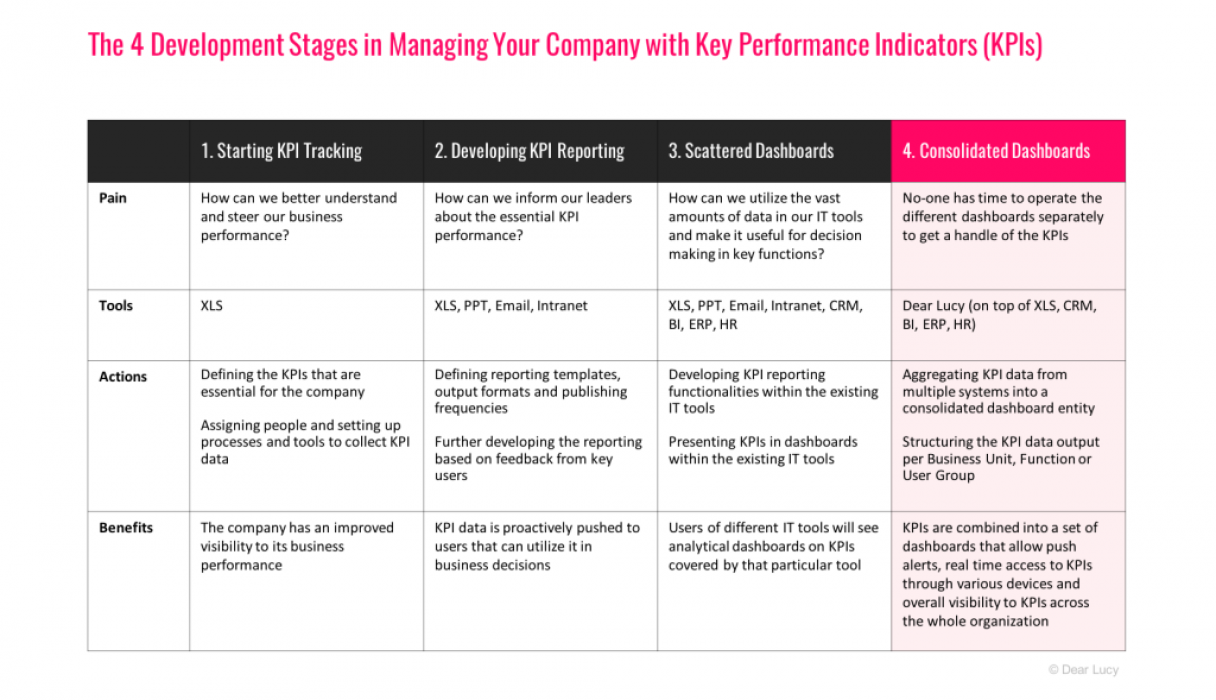Data driven management urges companies to develop their KPI management practices

Data driven management is a big trend. Leaders these days need accurate KPI data in real time and transparently enough to be easily communicated to the organization and interest groups. Yet efficient KPI management is easier said than done. We have developed a four-stage KPI management maturity model that lays out the typical stages that companies go through when improving their KPI management.
Earlier in my entrepreneurial career when I was managing an internationalizing growth company, I learned the importance of KPIs. ‘You get what you’re measuring’ goes the saying, and measure we did. I’m not saying we necessarily always measured the exact right things, yet I was happy we had this solid practice of setting documented targets, monitoring our performance against them, and learning along the way.
Now that I’m involved in many growth companies as a Board member and investor, proper KPI tracking and performance measurement is what makes my life so much easier. When there’s a limited amount of time to spend with each company, it’s critical to have the important numbers available almost in real time, or at least with little effort. For one thing, easy access to accurate KPIs enables informed steering of the business, but with companies at a high growth stage, the availability of KPI data is sometimes even a question of life and death.
Bringing structure and simplicity to managing with data
I’m not alone with my preference for KPI tracking. Data driven management is a big trend, and judging by surveys and many vendor arguments, every leader these days needs real time KPI data. In addition to having access to timely data, leaders also need to communicate the data to their organizations transparently to increase trust and engagement among employees and investors.
It’s also easier than ever to have the necessary KPI data available. There are thousands of different IT tools available that help manage organizational functions and processes. They also help present the data in analytical formats.
Yet maybe it’s the multitude of tools and processes that also make it surprisingly hard for many companies to come up with the KPIs to track, and to do that consistently over time and across the organization.
Based on experiences by myself and by the
experienced leaders of Dear Lucy, we have developed a 4-stage maturity model
that describes the challenges of KPI management in companies, and points to the
development priorities in bringing KPI management to the next level. We think
most organizations will be able to place themselves somewhere on the roadmap
that the framework lays out. While the descriptions in the framework are
necessarily generalizations, we also think they are helpful for organizations
that are ambitious with KPI management and want to plan their steps ahead in
KPI management in a systematic fashion.
Markko Vaarnas
Managing Partner, Takeoff Partners






